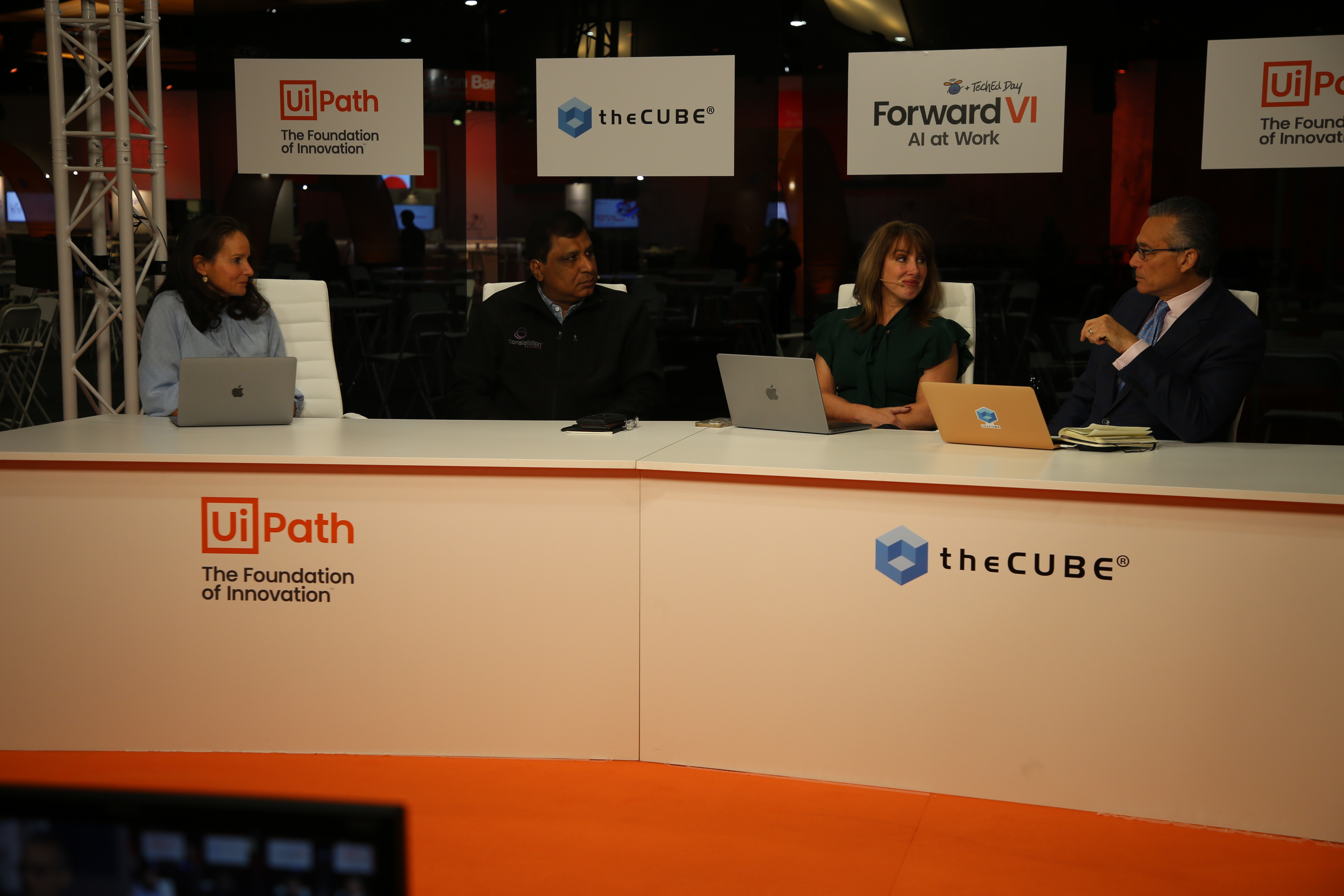 AI
AI
 AI
AI
 AI
AI
Artificial intelligence is no longer a mysterious buzzword, thanks to recent advancements and its accessibility. But a new term, “intelligent automation,” is accruing accolades from industry experts.
And rightly so, as automation of AI tasks could truly be a game changer for companies that properly figure out this element, according to Andy Thurai (pictured, second from the left), vice president and principal analyst at Constellation Research Inc. Meanwhile, AI and automation are still in their early stages of development, with the potential to significantly change the way work is done and how enterprises operate.
“They have figured out and finished almost all the low-hanging fruits. They need to move up the chain to provide some value in finishing the AI-based processes, which seem to be very manual nowadays,” Thurai said. “If you’re able to insert yourself in the value chain, going after the data platform, creating your own data models, doing things that would be time-consuming, [you would lose the advantage].”
Thurai discussed what comes next with theCUBE industry analysts Lisa Martin (second from the right), Dave Vellante (right) and Rebecca Knight (left) at UiPath FORWARD VI, during an exclusive broadcast on theCUBE, SiliconANGLE Media’s livestreaming studio. They discussed AI, automation and how certain companies can gain advantages over others by changing its approach. (* Disclosure below.)
Previously, limitations in computer power, data storage, AI engineering and data movement hindered the ability to scale models, but now with the combination of cloud, GPUs and AI, it is possible to build models of a greater size, such as what ChatGPT did, according to Thurai.
“Now the sky’s the limit. It’s true when you use cloud and the GPU and the combination to expand those things, you can build massive size models,” he said. “The ChatGPT 5 they’re talking about, I couldn’t even read the numbers on how big it is.”
Chief information officers have mixed feelings about the potential of the technology. They look forward to cost solutions, easy integration with existing systems and workflows, and the ability to produce code that was once considered impossible due to limitations in thinking, according to Thurai. Machines now assist humans with unlimited capabilities. The real challenge lies in developing learning systems instead of just knowledge-based systems. For instance, achieving self-driving vehicles raises the question of when we will have these advanced learning systems in place.
“In my view, when it comes to the human mind, where we excel, one of course is laziness. We want machines to do everything,” Thurai said. “If we encounter something that we haven’t seen before, a human brain in most ways would be able to figure out what to do with that situation. That’s where AI is still not ready yet. It’s stuck saying that, you know what, I don’t know what to do with that.”
Here’s the complete video interview with Andy Thurai, part of SiliconANGLE’s and theCUBE’s coverage of UiPath FORWARD VI:
(* Disclosure: UiPath Inc. sponsored this segment of theCUBE. Neither UiPath nor other sponsors have editorial control over content on theCUBE or SiliconANGLE.)